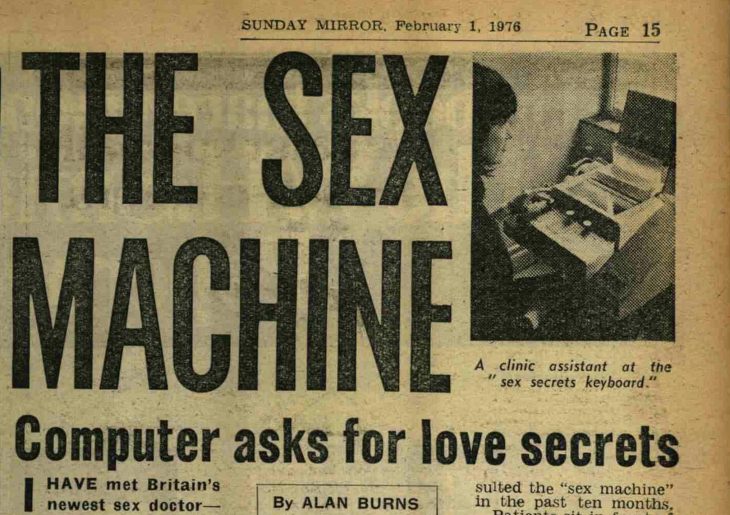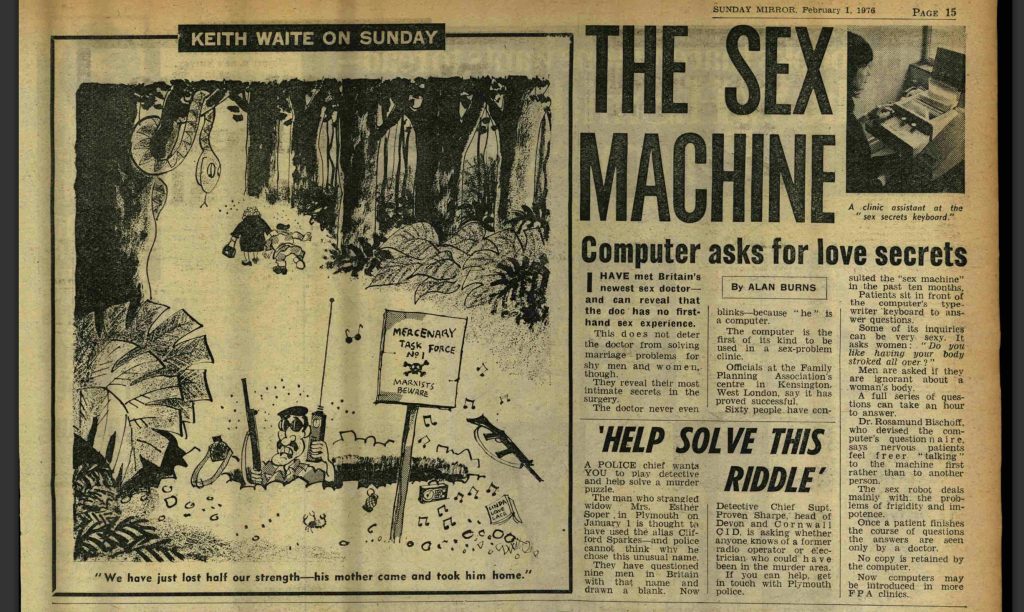
The 1976 ‘Sex Machine’ – The World’s First AI Sex Chatbot?
Early AI chatbots were already a thing by the 1960’s, with the groundbreaking ELIZA computer program launched at the MIT in 1964 by Joseph Weizenbaum. ELIZA, and often other early chatbots, took the role of a doctor or a psychotherapist, asking its human conversation partner questions about health or wellbeing. Perhaps this was because such asking of questions by the AI was easier to program and gave a more convincing illusion of being intelligent. As the first home PCs were still a decade away, these early chatbot interactions either took place in university or other research environments, or in a select few work settings.
It’s certainly possible that the first sexually suggestive AI speech took place in some of these pioneering conversations, and even that Joseph Weizenbaum coaxed a few naughty words out of ELIZA when nobody was looking. But it may be that the first openly ‘sexual’ use of AI took place in London from 1976 at the Family Planning Association’s clinic in Kensington. For according to an article published in The Sunday Mirror on February 1st of that year, a ‘sex machine’ was now taking the place of a therapist and asking couples intimate questions about their marriage problems and sex lives. According to the newspaper, the computer was the very first in the world to be used in a ‘sex-problem clinic’.
The article states that sixty patients had already used the chatbot and, according to the Family Planning Association, it had been a success, with other clinics looking to make use of it. Questions for females included – “Do you like your body to be stroked all over?”. Patients were reassured that the computer would retain no record of their responses. It also appears that interpretation of the answers, and perhaps sexual arousal, was strictly reserved for the human doctors at the clinic.
Fast forward half-a-century to the present day and young people are increasingly turning to AI chatbots for information on sexual matters. Already by 2023 a UK government survey found that one in 10 aged 16-25 relied upon AI for information about sexual health. And now there are an ever-growing number of smartphone apps, such as ‘Yodi‘, offering AI to help married couples to solve their problems. Sex toy retailer Lovehoney introduced their own AI assistant last year, claiming it could answer queries on sexual health and relationship issues. Given that they, and a number of other sex toy brands, sell AI haptic toys that allow couples to have remote virtual sex with each other, it’s only a matter of time before such toys will be able to give advice and improve the sex between couples.

